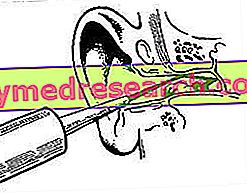
One of the complications induced by diabetes is a myocardial disease - the heart muscle - called diabetic cardiomyopathy .
Cardiomyopathies are pathologies that are characterized by an anatomical modification of the heart muscle, a modification that negatively affects the functional level, with sometimes very serious consequences on the functioning of the heart.
Indeed, those who suffer from cardiomyopathy have a weak and less effective heart in its blood pumping action.
The myocardial alterations that take place in the presence of diabetic cardiomyopathy consist in a dilation of the left ventricular cavity and in a thinning of the latter wall.
Doctors are keen to point out that it is incorrect to talk about diabetic cardiomyopathy, when a diabetic's myocardial problems are accompanied by a coronary alteration (ie coronary arteries that oxygen the heart muscle). In fact, in these situations, more than cardiomyopathy, it is myocardial ischemia or, in the most serious cases, myocardial infarction .
Diabetic cardiomyopathy is a devious heart disease, as it has long been asymptomatic. At the onset, the symptoms generally consist of dyspnea (ie shortness of breath), chest pain, abdominal discomfort associated with ascites, edema in various parts of the body, coughing, fatigue and recurrent fatigue.


